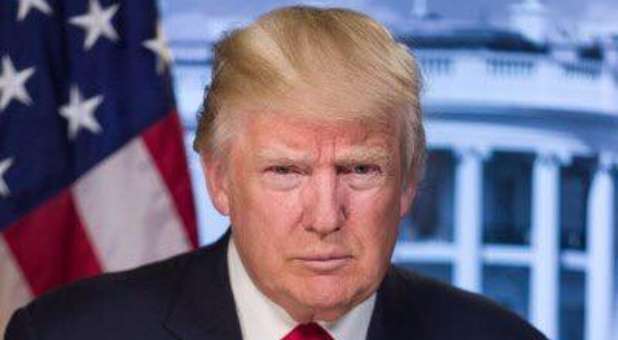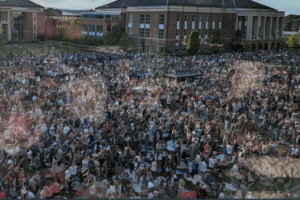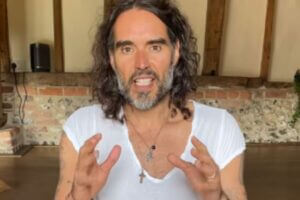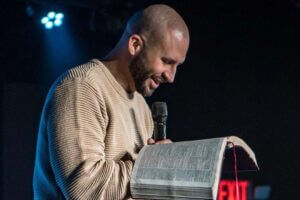“‘For my thoughts are not your thoughts, and your ways are not my ways,’ declares Yahweh.” (Isa. 55:8)
To our Jewish friends following American Renewal Project’s weekly opinion pieces, the New International Version of the Bible, and other versions, translate the Hebrew tetragrammaton YHWH as LORD. This revealed name of God (Ex. 3:12-18; 6:1-8) describes his eternal existence and causative essence.
Many modern scholars transcribe the name Yahweh, although Jewish people long have considered the name too sacred to pronounce or attempt to transliterate. Instead, they substitute Adonai in all recitations so as to avoid the remotest possibility of profaning the name.
God’s ways indeed seem singular from the human perspective. Twentieth century prophet A.W. Tozer (1897-1963) inquired where to find one with the ability to appraise the contemporary religious scene, as viewed from God’s position, and direct us to what is actually going on.
At this moment it’s safe to say that modern America will have to rediscover the chart and compass used by the Founders to establish freedom and liberty …. with its concentration and emphasis on religion and morality. That is, if the nation is to make it through.
Throughout the 17th, 18th and much of the 19th-century Christians were manning the spiritual, intellectual, educational, economic, vocational and cultural levers of power. Although never a perfect nation, the union of church and state caused few, if any, issues.
In contemporary America on the other hand, the clear and present danger represented by the collusion of secular atheism and the state threatens both sustainable freedom and the nation as such.
Os Guinness, English author and social critic, directs us to the finer point of this: “The First Amendment is unique. Both secularism and secularization in Europe were in reaction to various forms of state churches in Europe. The First Amendment saved America from all that, but the proper separation of church and state did not mean the separation of religion and public life. It was institutional and not ideological.
“The strict separationists are quite different. They want the complete separation of all religion from public life, and when they get it, they smuggle in secularism through the back door, as you say.
“I do think you blame secularism almost every time, when much the challenge today comes from postmodernism and cultural Marxism (Wokeism) rather than secularism proper, but that is a small point.”
Guinness’ appraisal underscores once again the foresight of U.S. Supreme Court Justice Potter Stewart (1915-1985) in his lone 8-to-1 dissent in the 1963 Abington School District v. Schempp case (the removal of the Bible from public education following 300+ years in American history). Justice Potter wrote that the decree “led not to true neutrality with respect to religion, but to the establishment of a religion of secularism.” In the Amen corner, The Wall Street Journal agreed that atheism was now “the one belief to which the state’s power will extend its protection.”
The Warren Court’s baneful 1963 decision was a complete revocation and annulment of the thinking and behavior instituted by the American Founders through the first 300 years in American history. The Founders insisted that the Bible be the principal text in public schools.
Founder Fisher Ames (1758-1808), co-author of the First Amendment to the U.S. Constitution, observed that “we have a dangerous trend beginning to take place in our education. We’re starting to put more and more textbooks in our schools. We’ve become accustomed to putting little books into the hands of children, containing fables and moral lessons. We’re spending less time in the classroom on the Bible, which should be the principal text in our schools.”
All this goes to show that America has come to its Kairos. The only way forward is a mass exodus from public education since public schools are secularism’s hotbeds for instilling pagan feral values into the next generations of young Americans.
The solution? Initiate a mass exodus from public education and move men and women of Issachar into the public square, with every church in America having a pastor, elder, deacon or congregant running for local office in 2024, 2026, 2028 and thereafter. When we do this, chances are that a Third Great Awakening will be on the way.
Thomas Paine’s “The American Crisis,” read on Dec. 23, 1776, three days before the battle of Trenton, to the half-clad, disheartened soldiers, still speaks volumes: “The coming days will be the times that try men’s souls: The summer soldier and the sunshine patriot will, in this crisis, shrink from the service of his country, but he that stands NOW, will earn the love, gratefulness and honor of the nation. Future American history books will write – and our children and grandchildren will rise and say—’This was their finest hour’.”
Tucker Carlson’s commentary last week—“Cling to your taboos”—reminded us of Jewish Hebrew scholar Michael V. Fox’s excellent Proverbs Commentary and biblical perspective on the battle facing us: “Like Wisdom, Folly seeks a public venue and appears in much the same places as wisdom.
They are often in proximity, proposing alternative choices in many circumstances.”
Still and all, with Gideon’s and Rahab’s entering the public square, praise be to God. {eoa}
David Lane is the founder of the American Renewal Project.
See an error in this article?
To contact us or to submit an article






















